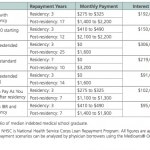WHAT’S THE FIRST STEP TO GET A MORTGAGE?
Credit Smart-Mortgage Ready
by Barbara Nevins Taylor
If you think it’s time to buy a home, it’s time to get credit smart. Take a hard look at your personal finances before you do anything else. Melissa Cohn of Manhattan Mortgage advises, “The most important thing to do is get your financial house in order.” That requires you to do a number of things.
EXAMINE YOUR CREDIT REPORT
Begin by examining your credit report. “Your credit report is literally a report of the credit that you’ve applied for and your payment history,” says Leonard Gordon, Northeast Regional Director of the Federal Trade Commission.
CREDIT BUREAUS
Equifax, Experian and TransUnion are the three private companies that keep track of personal credit histories.
Student loans, credit card payment, late payments, car loans, mortgages and information about judgments against you are listed on the credit report.
Sometimes the information is wrong, and that’s why it’s important to check your credit report.
CREDIT REPORTS
You can check your credit report for free three times a year by going to annualcreditreport.com. There is no need to pay for a credit report, or a credit check.
The FTC’s Gordon says, “If you’ve been paying your bills on time and it shows that you are paying them late, you want to fix that. If there is anything inaccurate in your report, you should write letters to both the reporting agency and the creditor explaining why the report is in error. Attach documentation and send it by certified mail.” Do not send the originals. Send copies, and keep a copy of everything that you mail. Find a sample letter at http://www.ftc.gov/bcp/edu/pubs/consumer/credit/cre21.shtm
The credit reporting company must investigate. It usually takes about 30 days. Then they must tell you, in writing, what they discovered. If there’s anything wrong, the company must make the changes and provide a free copy of the new report. You can also ask the credit bureau to send a copy of the new report to anyone who received your erroneous credit report in the previous six months.
ACCURATE NEGATIVE INFORMATION
If your credit report has negative comments and you have outstanding debts, there is no magic fix. Many companies advertise that they can help you improve your credit score. “That’s a lie,” says Herman De Jesus with the consumer advocacy group NEDAP in New York.
He says “We’ve seen a lot of people who have paid a large amount of money to these companies that promise a quick turn around on the repair of their credit, and it’s never, ever happened.”
You must pay your bills on time, and clear your previous debts. It takes seven years to completely clean up your credit report.
CREDIT REPORT AFFECTS CREDIT SCORE
What’s on your credit report affects your credit score. Your credit score is different than your credit report. The credit score is a statistical analysis of the information listed on the report. It takes into account how many credit cards you have, your outstanding debt and your bill paying history.
YOUR FICO SCORE
Most banks use the FICO Score created by the Fair Isaac Corporation. Fico Scores range from 300 to 850.
Banks consider 740 an A credit score. Mike Copley, Senior Executive Vice President of TD Bank, says, “We would look at anything from 680 up. Other banks have different policies at New York’s Amalgamated Bank, Eric Ruskiewicz says, “We’ll lend to someone with a 620 score, and we think most people would qualify.”
Generally, if your credit score is high you’ll get a lower interest rate. If it’s low and you’re still credit worthy, you’ll pay a higher interest rate. Copley explains, “If you have a lower FICO you are deemed more risky and the banks have to price in that element to protect themselves.”
The difference in interest rates can be significant. If you have a FICO Score of 780 to 850 and want to get a $300,000 mortgage, you will get 1½ percent lower interest rate than if you had a 620 to 639 credit score. And that means you’ll save more than $104,000 over the life of a 30-year mortgage.
But again, banks do things different. At Amalgamated Bank example, Ruskiewicz says, “The interest rate is usually the same, but you may pay more in fees.
NEXT STEP
Once you understand your credit score, it’s time to assess your budget. “Before you go shopping for a home you have to know how much you have to spend,” says attorney Adam Leitman Bailey author of Finding the Uncommon Deal.
A banker, mortgage broker, or a counselor at a not-for-profit agency can help figure it out, and pre-qualify you for a mortgage. You’ll need a complete financial package.
“That means your bank accounts and all the cash you have on hand. Banks will require that you provide a verification of your income for the past two years, meaning tax returns. You will have to provide verification of your liquid assets,” says Mellissa Cohn of Manhattan Mortgage.
It’s important to avoid making big purchases and opening new credit cards the year that you apply for a mortgage. Payments reduce the amount banks are willing to lend you.
Kenneth Totten of Metuchen Savings Bank offers an excellent example: “If you have a $300-a-month car payment, that will affect your ability to buy the house by about $60,000. If you were able to afford a $300,000 house that goes down to $240,000 because you are driving around in a $300-a-month car.”
![]() Will Social Security and Medicare Be There for Me and My Family
Will Social Security and Medicare Be There for Me and My Family







